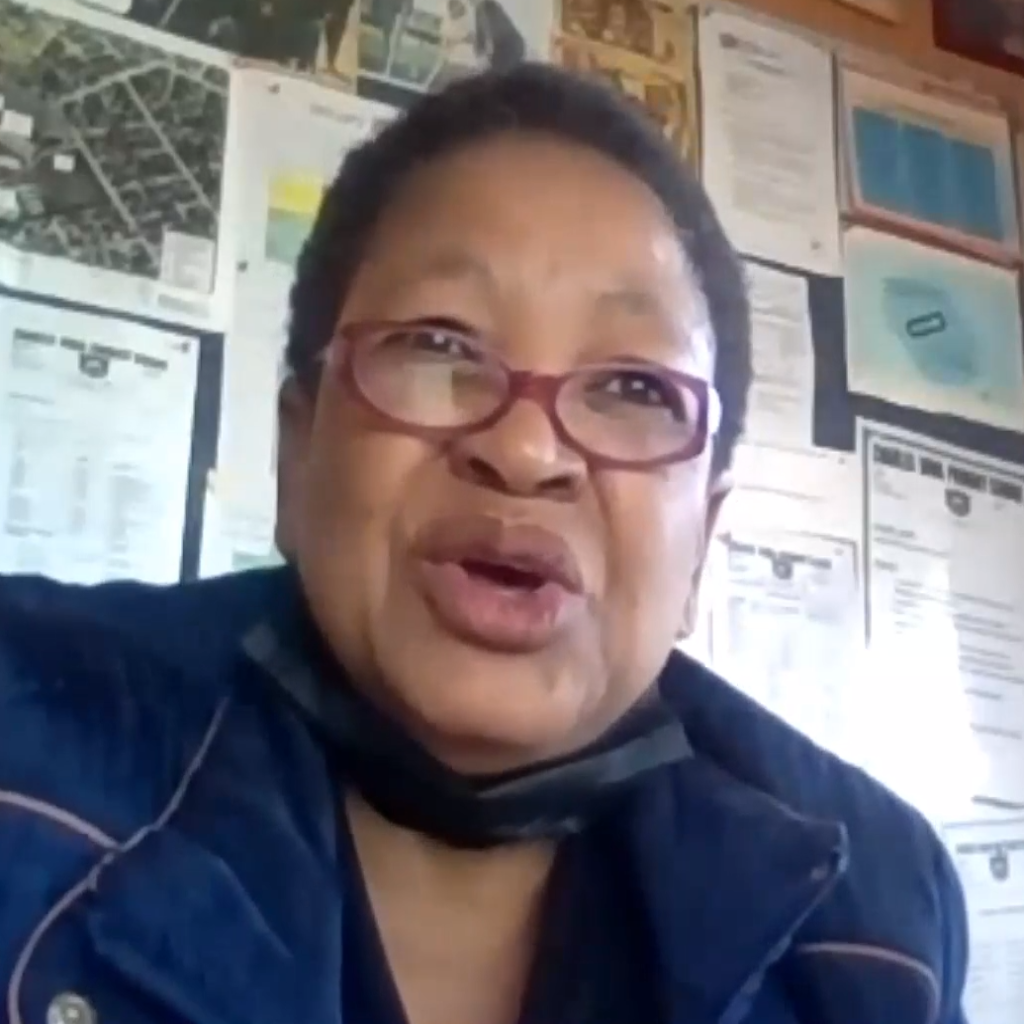
Our first speaker Professor Jean Greyling from Nelson Mandela University shared his experiences of bringing unplugged coding to South African schools and learners. In the presentation he started off with explaining why schools should be teaching coding and that it is about bridging the digital divide and opening up more career opportunities to students rather than having them all becoming software developers.
He went on by explaining the challenges faced in many schools in South Africa especially in regard to infrastructure, equipment and lack of qualified teachers. IT related topics often become very theoretical or the teachers have to focus on ‘carrying a limited number of students across the digital divide river’.
Prof. Jean explained that there are 16000 schools in South Africa that lack computer labs. The costs of equipping all those schools with computer labs are high as many schools would need also electricity, Internet and additional security measures.
Prof. Jean has been working on solutions to be able to make all students able to cross the digital divide river. In a South African context the one computer per child approach is unrealistic and this is when he introduced the concept of unplugged coding. With unplugged coding there is no need for computers, electricity or internet. It is a low cost solution that does not have to compromise on quality where teachers do not need to have extensive training and activities can be made fun for the students.
Unplugged coding can be as simple as breaking down daily activities and plays into step by step instructions to gain computational thinking skills and gain understanding for how also coding is sets of instructions to perform certain tasks.
Prof. Jean has been the driver behind the development of the application TANKS, Boats and Rangers. The applications are developed for mobile phones and tablets where a few devices can be shared among the students in a classroom. A tank, boat or ranger is placed on a grid in the app and needs to move to a certain place or goal. The students use small tiles looking almost like puzzle pieces where each piece represents an instruction which the students then attach in a sequence. The app makes use of the camera for image recognition to execute the sequence laid out by the students. On the screen it will show the movement of the tank/boat/ranger to see if it moves to desired location. The tiles allow the student to incorporate programming concepts such as loops and nested constructs. Lesson plans and instructional videos have also been developed to support teachers in using the unplugged coding apps for their students.
1200 teachers have been trained in the past year with great feedback from the teachers where they believed it helped demystifying coding and that it could be integrated in any classroom setting without dependence on computer labs, in fact teaching can equally well be done outside any classroom, in the school yard or fields. The teachers felt empowered to being able to teach coding and the learners were enjoying the coding lessons. Most of the desired outcomes in the CAPS coding and robotics curriculum can be addressed through unplugged coding where the students will develop skills such as analytical and critical thinking, problem solving, creativity, leadership and reasoning. Unplugged coding encourages peer learning and activates the students and in prof. Jean’s opinion unplugged coding is the solution for Africa!
More about TANKS in Schools
Unplugged coding is also well recognized within the Code School Finland curriculum whereas three of the learning modules are based on unplugged coding i.e. ‘My AI robot’, ‘Everyday Computational Thinking’ and ‘Play & Learn 1’.
The second presentation in the webinar was by Mrs Sume – Principal at Charles Duna Primary School in New Brighton, Gqeberha. Mrs. Sume shared the experiences over the years to introduce the learners at her school to coding and robotics where apart from working with unplugged coding they have also been one of the schools selected for the Code School Finland pilot study.

Their journey to bridge the digital divide started in 2017 when two teachers got training on robotics. The school is situated in an area surrounded by mostly informal settlements and with high unemployment rates. As a non-fee school they do lack resources but they are happy that they have been getting the opportunities to work with the unplugged TANKS and Rangers coding apps. It came to a surprise to her at first that they didn’t need computers for the activities and that they could use cellphones and tablets instead. The kids were very excited in building their sequences with tiles and as they were having a shortage of phones she even allowed the students to make use of her personal phone.
The students were actively working in groups, they were thinking and problem solving. She believes that the skills developed in the process are also helping the students in their other subjects as well. What she also found amazing was that there were hardly any instructions needed for the kids to get started and it didn’t take long for the kids to figure out how to play the game. Seeing the kids programming, doing robotics, working with scratch and making animations allow them to dream. With the skills gained during the sessions you can give them any challenge and they will be ready to take it on. There is a shortage of software developers and programmers and why shouldn’t they also be able to come from New Brighton as we are opening up new career paths to our learners.
The kids are ready they just need to be given the opportunities to learn about coding and robotics. She also expressed the excitement of being able to expose her learners also to the Code School Finland curriculum. As peer learning is happening while they are working in their coding projects they are able to work more in their own mother tongue which also helps them to get more out of the sessions. Her main advice to teachers that want to introduce coding at their schools is to remove the fears as her experience is that it is fears that often cripple the teachers from even considering start teaching coding to their students. The kids are always fearless so allow them to take the lead as they will be able to figure it out even if the teachers are struggling. Her advice to schools is not to hesitate to recruit younger teachers as they tend to easier adapt to new technologies and teaching methods.

